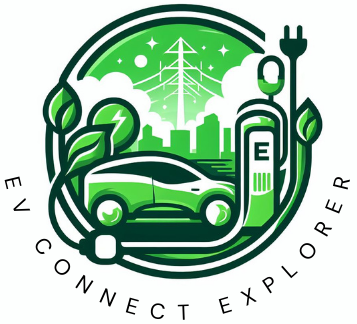
With the global push towards reducing carbon emissions and combating climate change, the adoption of electric vehicles (EVs) has been steadily increasing. As more consumers embrace EVs as a cleaner and more sustainable mode of transportation, the demand for EV charging infrastructure has surged. Consequently, there is a growing need for skilled technicians who can install, maintain, and repair EV charging stations.
The International Energy Agency (IEA) predicts that the number of electric cars on the road will reach 145 million by 2030, up from just 11 million in 2020. This exponential growth in EV adoption will require a proportional expansion of charging infrastructure to support the burgeoning fleet of electric vehicles. As a result, there will be a significant uptick in the demand for technicians with expertise in EV charging station installation and maintenance.
Moreover, governments around the world are implementing ambitious targets to phase out internal combustion engine vehicles in favor of electric alternatives. These targets necessitate the rapid deployment of EV charging infrastructure, further driving the demand for skilled technicians. Therefore, investing in training and certification programs for EV charging station technicians is imperative to meet the evolving needs of the electric mobility industry.
The Complexity of EV Charging Infrastructure
EV charging stations comprise sophisticated systems that require specialized knowledge to operate effectively. Unlike conventional fueling stations, which are relatively straightforward in design and function, EV charging infrastructure involves a multitude of components and technologies. From power electronics and battery management systems to communication protocols and software interfaces, EV charging stations are complex entities that demand a comprehensive understanding of electrical engineering principles.
Furthermore, EV charging stations come in various configurations, including Level 1, Level 2, and DC fast chargers, each with its own set of technical requirements and operational considerations. Technicians tasked with installing and maintaining these charging stations must possess the skills to navigate the intricacies of different charging technologies and protocols.
Safety is another critical aspect of EV charging infrastructure. High-voltage electricity is involved in the charging process, making adherence to safety protocols paramount. Technicians must be trained to identify potential hazards, implement safety measures, and mitigate risks to ensure the protection of both personnel and equipment.
Given the complexity and safety considerations inherent in EV charging infrastructure, comprehensive training programs are essential to equip technicians with the knowledge and skills required to perform their duties competently and safely.
The Role of Training Programs in Developing Expertise
Training programs for EV charging station technicians play a pivotal role in developing the expertise needed to install, maintain, and troubleshoot charging infrastructure effectively. These programs cover a wide range of topics, including electrical fundamentals, EV charging station architecture, safety protocols, and customer service skills.
Hands-on training sessions are a cornerstone of these programs, providing technicians with practical experience in working with various types of charging equipment and scenarios. Participants learn how to install charging stations, perform routine maintenance tasks, diagnose faults, and rectify issues efficiently. By simulating real-world situations in a controlled environment, trainees gain valuable experience that prepares them for the challenges they may encounter in the field.
Moreover, some training programs offer opportunities for apprenticeships or internships, allowing participants to gain practical experience under the guidance of experienced professionals. These hands-on learning experiences not only enhance technical skills but also foster mentorship and collaboration within the industry.
Additionally, training programs often incorporate modules on customer service and communication skills, recognizing the importance of providing a positive experience for EV owners. Technicians learn how to interact professionally with customers, address their inquiries and concerns, and ensure their satisfaction with the charging service.
By investing in comprehensive training programs, stakeholders in the EV industry can cultivate a skilled workforce of technicians capable of delivering high-quality service and support for EV charging infrastructure.
The Importance of Certification in the EV Industry
In the dynamic and rapidly evolving field of electric vehicles, certification serves as a validation of a technician’s expertise and professionalism. Industry-recognized certifications provide employers and customers with confidence in the technician’s ability to perform their duties competently and safely.
Certification programs typically involve rigorous assessments of technical knowledge and practical skills related to EV charging station installation, maintenance, and troubleshooting. By obtaining certification, technicians demonstrate their commitment to continuous learning and professional development, distinguishing themselves as competent and reliable professionals in the industry.
Employers often prioritize certified technicians when hiring, as certification serves as a reliable indicator of proficiency and competency. Certified technicians are better equipped to handle the complexities of EV charging infrastructure, leading to improved service quality, enhanced reliability, and greater customer satisfaction.
Furthermore, certification can open doors to career advancement opportunities and higher earning potential for technicians. As the demand for EV charging infrastructure continues to grow, certified technicians will be in high demand, commanding competitive salaries and enjoying greater job security.
By obtaining industry-recognized certifications, technicians can position themselves as leaders in the rapidly expanding field of electric mobility, contributing to the advancement of sustainable transportation solutions and driving positive change in the automotive industry.
Empowering Technicians for a Sustainable Future
The transition to electric mobility represents a paradigm shift in the automotive industry, with profound implications for transportation, energy, and the environment. At the heart of this transformation lies the need for skilled technicians who can deploy and maintain the infrastructure that supports electric vehicles.
Training and certification programs play a vital role in equipping technicians with the knowledge, skills, and credentials needed to excel in the field of EV charging infrastructure. By investing in comprehensive training initiatives, stakeholders can ensure the development of a skilled workforce capable of meeting the demands of this rapidly evolving industry.
As the adoption of electric vehicles continues to accelerate, the importance of trained and certified EV charging station technicians will only grow. By empowering technicians with the tools and expertise to succeed, we can pave the way for a cleaner, more sustainable future powered by electric mobility.
